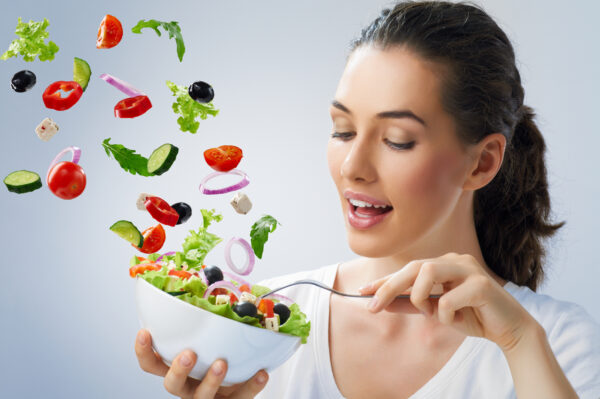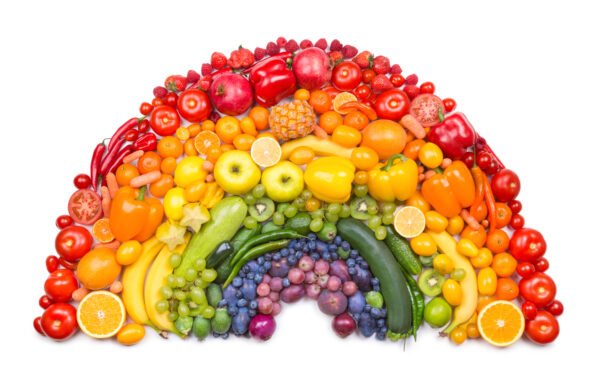
All parts of the body, including the skin, require proper nutrition, and food is the primary supply.
Can You Get Healthier Skin From Your Diet?
Once upon a time, people believed that topical skincare products that penetrated the skin were responsible for its clear appearance. Now more than ever, people are discussing internal approaches to better skin.
Supplements are marketed as a way to reduce the signs of aging, and online experts counsel eating a certain diet to clear up acne. So, can you really achieve “excellent” skin with diet alone?
In what ways does one’s diet impact skin health?
Food is the primary source of nutrition for our bodies, including our skin. The skin is an organ, after all. Our skin needs the same macro- and micronutrients that help our muscles, brain, and heart function well in order to combat germs, inflammation, and the breakdown of skin cells, as well as to repair and regenerate new skin.
A review of the studies on the impact of nutrition on skin health was published in 2021 in the journal Nutrients. It was discovered that, in the most trustworthy trials, supplementation with nutrients or general dietary changes was linked to better measurements of skin elasticity, facial wrinkling, roughness, and color.
Even if you regularly apply topical treatments like retinol (vitamin A), vitamin C serums, and zinc-based compounds, you may be missing out if you don’t get enough of these nutrients in your diet. The paper compared exterior therapies (such as creams and lotions) with internal ones (such as eating healthy foods) and concluded that the most effective method to enhance the state of the skin is to supply it with needed nutrients, both outwardly and—importantly—internally.
Consume the rainbow
In terms of the “best” diet for healthy skin, a varied intake of fruits and vegetables of various hues is recommended.
Because foods of different colors contain different nutrients (for example, orange foods derive their color from carotenoids, a form of vitamin A), eating the rainbow is a surefire way to replenish your body’s supply of essential micronutrients. The polyphenols found in these foods have been shown to reduce the effects of free radicals on the skin, thereby delaying the onset of skin aging.

Due to the fact that foods of different colors contain different nutrients, eating the rainbow is a surefire method to replenish your body’s essential micronutrients.
A Low-Glycemic Index Diet
According to a review published in Healthcare in 2021, a low glycemic index (GI) diet is also significant for controlling skin issues. Researchers found that a high glycemic index (GI) diet increases sebum (acne-causing oil) because it causes a rise in blood sugar and, in turn, insulin production, which in turn increases sebum excretion.
Can better skin really just come from eating?
The solution isn’t necessarily to eat more salads and take multivitamins. Although a wide variety of nutrients are required for healthy skin, there are very few circumstances in which consuming more than the recommended amount is advantageous. Supplementing with these nutrients is essentially useless unless we already have a deficiency.
According to one study published in 2017 in the journal Nutrients, the advantages of vitamin C supplements depend on a person’s baseline status, with the supplement having less of an effect on someone whose dietary consumption is already sufficient.
Beyond Nutrition
Improving one’s diet isn’t the only way to have better skin. The skin is the body’s largest organ and the first line of defense against its surroundings; therefore, it is subject to a wide variety of environmental and internal influences. The sun, cigarettes, alcohol, and stress are just a few of the numerous factors that can affect our skin’s appearance and health.
According to a study published in the Journal of the European Academy of Dermatology and Venereology, stress is associated with transient but significant alterations in the neurological, hormonal, and immunological systems, which in turn alter the skin’s protective barrier. According to a 2017 article by researchers from Tokyo University, sleep deprivation has a greater impact on skin diseases than one’s diet or eating habits.
“Botox after Berries”: Do you still need it?
While it’s true that diet isn’t the only factor in skin health, eating healthily can help us look our best. Eating a rainbow also has other health benefits beyond just a more radiant appearance. Yet, there are several determinants of healthy skin that are beyond our control, such as our age and heredity.
Keep in mind that there are no diet, cream, or extra eight hours of sleep that can give you a flawless, filter-worthy complexion like the ones on Instagram.
Botox procedures can leave your complexion more supple and luminous while minimizing the appearance of fine lines and wrinkles, which can make you look younger. Its use can reduce wrinkles and other aging symptoms.
Dentox can teach medical professionals how to administer Botox in a secure and efficient manner. You can choose to attend a class at one of our many easily accessible sites throughout the United States, or you can benefit from our practical online learning alternatives to study whenever it’s most convenient for you. You may find information about our live and virtual courses at https://dentox.com/live-courses/ and https://dentox.com/all-courses/botox-training, respectively.







